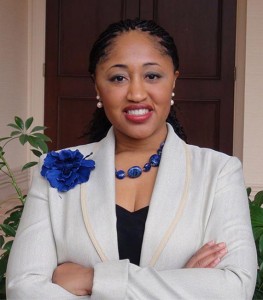 Community Matters is a biweekly opinion column. The views expressed are solely the author’s.
Community Matters is a biweekly opinion column. The views expressed are solely the author’s.
August 2020 marks the centennial of the ratification of the 19th amendment. As we reflect on the courage and tenacity of the suffragists and women’s rights leaders who secured the right to vote for primarily white women, it’s hard not to question the racism (and the sexism) of the movement.
Some argue it is not fair to judge those who lived in a different time using a modern day lens. Yet, there are several examples of those who took the unpopular positions of demanding equal voting rights and integration. Others argue that the white suffragists made strategic and political decisions to not support Black voting rights in order to secure passage of the 19th amendment. Yet, it took another 45 years after the passage of the 19th amendment to pass the Voting Rights Act, and some organizations continued to restrict their membership to whites only.
Arlington has several connections to suffragists and women’s rights activists. Sojourner Truth is well known for being one of the leading abolitionists and Black suffragists. Arlington County Library notes that in 1865, Truth accepted a position with the National Relief Association at Freedmen’s Village in Arlington Heights at the intersection between Columbia Pike and South Joyce Street.
According to a March 2018 Arlington Magazine article, in 1920, Gertrude Crocker, a noted suffragist and treasurer for the National Woman’s Party, opened the Little Tea House on Arlington Ridge Road. In the years that followed, the famed restaurant (which closed in 1963) was one of the first Arlington establishments to allow racially mixed groups to dine together.
While not “suffragists” in the traditional sense, as we commemorate the mission of earning the right to vote for women, it’s important to recognize the work of women who pressed for civil and women’s rights throughout the 20th century.
Arlington native Joan Trumpauer Mulholland, is a Civil Rights icon who participated in over 50 sit-ins and demonstrations by the time she was 23 years old, and happens to be white. For her actions she was disowned by her family, attacked, shot at, cursed at, put on death row and hunted down by the Klan for execution.
Another face of movement was the “colored women’s clubs” which were precursors to Black sororities (my own sorority, Zeta Phi Beta Sorority, Inc. is also celebrating our centennial this year) and organizations like the Links, Inc. and National Coalition of 100 Black women. While Black sororities are social and often host luncheons and galas, we are also professional organizations who all have missions to promote scholarship, service and political/social action. Democratic Vice Presidential pick Kamala Harris is a member of one of the largest Black sororities, Alpha Kappa Alpha Sorority, Inc. and the Links, Inc., whose members have actively supported her throughout her career.
Pauline Ellison moved to Arlington in 1956, at a time when racial segregation was the norm. Ellison served on the Civil Service Commission, the Equal Employment Opportunity Advisory Committee, and the Arlington Community Foundation board of trustees. She was also a national president of The Links, Inc.
Voting rights is only one step towards equality. As you tune into or read some of the hundreds of webinars, Facebook chats or news articles on the centennial of the passage of the 19th amendment, take some time to reflect on what equality meant on August 26, 1920, and what it means today. While not perfect, Arlington has our own examples of women who refused the status quo. Whether it was as a abolitionist, suffragist and business owner, civil rights activist, or local leader and the president of a Black women’s organization, their courage and tenacity also provides excellent examples of how we can continue the march to true equality in Arlington.
Krysta Jones has lived in Arlington since 2004 and is active in local politics and civic life. This column is in no way associated with or represents any person, government, organization or body — except Krysta herself.

